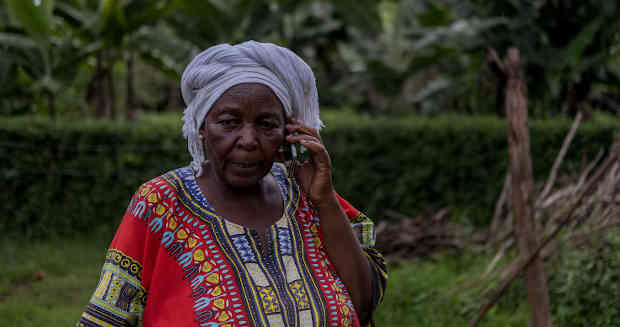IFAD Tech Project to Help Farmers Overcome Covid-19 Impact
Innovatech will select twelve already-existing companies that are suitable and willing to adapt their digital services to the needs of smallholder farmers.
The UN’s International Fund for Agricultural Development (IFAD) has launched the Innovatech project, which aims to develop agricultural (AgriTech) and financial (FinTech) digital solutions to facilitate small farmers‘ access to markets and to financial and non-financial services in Bolivia, El Salvador, Guatemala, Haiti, Honduras and Mexico.
The German Sparkassenstiftung for Internationale Cooperation, an institution specialized in promoting local finance systems in developing countries, will implement the project, which is expected to directly benefit 9,000 rural households.
“The Covid-19 pandemic has created a new world. Economies have gone digital and global and local food systems are following suit. It’s time for small-scale farmers to have access to the new services and tools that can connect them better to this new economic environment. Only in that way can they go beyond subsistence production to become prosperous entrepreneurs, able to ensure the livelihoods of their families and communities,” said Rossana Polastri, IFAD’s regional director for Latin America and the Caribbean.
“The IFAD-funded Innovatech Project will offer a great opportunity for growth, development and innovation in the six countries where it takes place. I’m very pleased that the German Sparkassenstiftung is able to contribute to this process by bringing to the table its years of expertise and lessons learnt in the field of digital financial services and rural development,” said Niclaus Bergman, the organization’s CEO.
In Latin America, the Covid-19 pandemic has had a strong impact on small-scale farmers and their organizations. They have experienced many challenges, including complications in acquiring the resources and raw materials needed for food production, limited transport and marketing, and more difficult access to financial services and technical assistance.
At the same time, AgriTech and FinTech companies have grown rapidly in the region and the potential for solutions they can offer is high on the agenda of many policymakers. Despite the increasing number of these companies, the services they offer to smallholder farmers remains limited, as most of them primarily target urban-based medium or large clients.
The challenge to improve linkages between smallholder farmers and FinTech and AgriTech companies is considerable. However, it is particularly important to do so to help smallholders overcome the unprecedented challenges caused by Covid-19. Doing so will facilitate farmers’ demands for new services and technical solutions tailored to their needs, helping them to build back better and to strengthen their resilience to future crises.
Most of the technology companies are willing to improve and expand their services to serve small farmers. However, still in their early stages of business development and with limited financial and human resources, the high cost of reaching clients in rural areas makes it prohibitive to do on their own. Investment in the Agri- and FinTech sectors is needed to strengthen their capacities to supply digital services and technological solutions to IFAD’s target group.
Innovatech will select twelve already-existing companies that are suitable and willing to adapt their digital services to the needs of smallholder farmers. In collaboration with IFAD’s operational and technical assistance staff, the companies will adapt, thoroughly test and put in place solutions that match the needs and capacities of end users (farmers’ cooperatives, producers’ organizations, small and medium rural enterprises) to connect smallholder farmers to markets, services and financing.
The project is funded with a US$ 3.5 million grant from IFAD’s Rural Poor Stimulus Facility, which was set up after the onset of the Covid-19 pandemic to boost the resilience of poor rural people affected by the crisis. Through the adoption of innovative technologies for agricultural management, flexible financial products and the reach to broader markets, smallholder farmers will be able to strengthen their resilience to commercial shocks, to climate risks and to economic distress.















